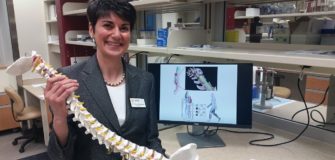Music: 4 powerful ways on how it helps older people with Dementia
Share
Neuroscientists have carried out extensive research into how music affects the neural pathways and connections in our brains and how listening to music can provide essential emotional and behavioural benefits for those living with dementia – the sounds they listen to awaken different parts of the brain that are not affected by dementia. These are the powerful effects of music on memory
Listening to music, especially tracks from the individual’s young adult years (18 to 25), can bring about positive engagements and recollections for those living with dementia. This form of therapy is intrinsic to relieving stress and anxiety, depression and agitation, and has extremely positive impacts on the individual’s behaviour.
Barbara Else, Senior advisor of policy and research at the American Music Therapy Association says:
“We have such a deep connection to music because it is ‘hardwired’ in our brains and bodies. The elements of music – rhythm, melody, etc. – are echoed in our physiology, functioning and being.”
4 Powerful Effects of Music on Memory
1. Positive memory
Music has the ability to allow us to revisit fond memories and recollect past experiences and engagements. Many of our residents go back through time to when they attended a dance or listened to songs played around their homes as children growing up. These throwbacks are extremely pleasurable for all our residents who participate in Music Memories.
2. Motivating movements
Even the most minimal movement, such as tapping a foot or clapping of hands, can have significant benefits for our residents. This ‘dancing’ can relieve any mental or physical stress and help lower blood pressure and stimulate vital organs. Our residents love moving to the rhythms and expressing themselves.
3. Calming nervousness
Music that promotes a sense of beauty and well-being can help support someone who is feeling nervous or agitated. Just as a lullaby song can soothe a baby, gentle music can ease a nervous resident. Therefore, we pay careful attention to the type of music that residents listen to and create bespoke playlists tailored to them.
4. Promoting social interaction
Music can help lift spirits and promote a sense of well-being to everyone who listens. Whether our residents are listening with headphones or out loud in a group, our Music Memories program brings residents together to improve their quality of life.
Regis Aged Care specialized Music Memories program focuses on supporting residents living with dementia, or those who are experiencing any form of depression, anxiety or restlessness – Music Memories is open to all residents.
As a Social Media and Content Executive, I specialise in the end-to-end development of social media content creation. This includes creating campaign plans, copywriting and scheduling posts, plus analysing data and writing reports for multiple clients. I'm currently located in Melbourne on a working holiday visa.












